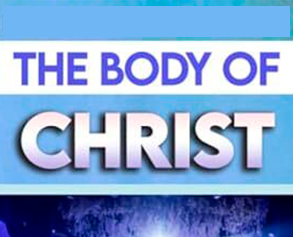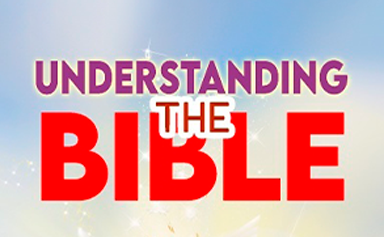
- Instructor: Admin
- Lectures: 5
- Quizzes: 5
Course Description:
This course is an in-depth exploration of Christology—the study of the person and work of Jesus Christ—within the framework of the Bible. Through this course, students will examine the various Christological themes revealed throughout the Old and New Testaments, understanding how Christ’s identity and mission were progressively revealed by God. Students will also study key theological doctrines such as the Incarnation, the Atonement, Resurrection, and Christ’s present and future roles, while maintaining a focus on how Scripture unfolds Christ’s significance. This course will cover various aspects of Christology through a biblical lens, exploring key themes and doctrines concerning the nature, person, and work of Jesus Christ, as revealed in Scripture.
CHRISTOLOGY BASIC BIBLE DOCTRINES FREE ONLINE COURSE Q AND A
Course Objectives:
By the end of this course, students will:
Understand Christology within the narrative of Scripture.
Examine how the person and work of Jesus Christ is revealed progressively throughout the Old and New Testaments.
Be able to articulate key Christological concepts, including the Incarnation, Atonement, Resurrection, and the work of Christ in salvation.
Integrate Christology with broader theological themes, such as creation, redemption, and eschatology.
Develop a robust understanding of the implications of Christology for Christian life and worship.
Course Outline:
Introduction to Christology
– Definition and scope of Christology.
– The relationship between Christology and other theological disciplines (e.g., Soteriology, Ecclesiology).
– The concept of “progressive revelation” in Scripture.
– The hermeneutical method: Reading the Old and New Testaments as a unified story pointing to Christ.
– Key Biblical Theological themes in Christology.
Christology in the Old Testament
Christ in the Creation Narrative
– The pre-incarnate Christ in creation (John 1:1-3, Colossians 1:15-17).
– Theophanies and Christophanies (e.g., Genesis 18, Exodus 3).
The Promised Messiah
– The role of prophecy and typology in understanding Christ.
– Key Messianic Prophecies: Genesis 3:15 (Protoevangelium), Isaiah 9:6-7, Micah 5:2.
Types and Shadows of Christ
– Understanding Christological types in figures such as Adam, Moses, David, and the High Priest.
– The role of the sacrificial system (Leviticus, Passover, the Day of Atonement).
Christ in the Wisdom Literature and Psalms
– The personification of wisdom in Proverbs.
– The Messianic psalms (Psalm 2, Psalm 110) and their fulfillment in Christ.
The Incarnation and Early Life of Christ
The Doctrine of the Incarnation
– Defining the Incarnation: The union of divine and human natures in the person of Christ.
– Biblical foundations: John 1:14, Philippians 2:5-11, Colossians 1:19-20.
Christ’s Birth and Early Life
– The genealogies and their significance (Matthew 1, Luke 3).
– The fulfillment of Old Testament prophecies in the birth of Christ (Isaiah 7:14, Micah 5:2).
– Key events of Jesus’ early life: The flight to Egypt, presentation at the temple (Luke 2).
The Life and Ministry of Christ
Jesus as the Fulfillment of the Law
– Christ’s relationship to the Law: Matthew 5:17-20, Romans 10:4.
– Christ as the New Moses and the ultimate fulfillment of God’s covenant promises.
Jesus as the True Israel
– The symbolism of Christ’s life as Israel’s representative (Matthew 2:15, Hosea 11:1).
Jesus’ Miracles and Signs
– The significance of Jesus’ miracles as signs of the Kingdom of God.
– Healing, exorcisms, nature miracles, and their Christological implications.
The Kingdom of God in the Ministry of Jesus
– The proclamation of the Kingdom and its inauguration through Christ.
– Understanding the “already, but not yet” nature of the Kingdom of God.
The Atonement: Christ’s Death
The Nature of the Atonement
– Atonement as substitutionary sacrifice: 2 Corinthians 5:21, Isaiah 53.
– Theories of the Atonement: Moral Influence, Christus Victor, Penal Substitution.
The Cross and Christ’s Mission
– Christ as the Lamb of God (John 1:29, Revelation 5:6-14).
– The significance of Christ’s death in the Old Testament sacrificial system.
Christ’s Victory over Sin, Death, and Satan
– The triumph of the cross (Colossians 2:13-15, Hebrews 2:14-15).
The Resurrection and Ascension
The Resurrection: A Vindication of Christ’s Person and Work
– Theological significance of the Resurrection: Romans 1:4, 1 Corinthians 15:14.
– The bodily resurrection and its implications for believers.
The Ascension and Exaltation of Christ
– Christ’s exaltation at the right hand of the Father (Acts 2:33-36, Ephesians 1:20-23).
– The implications of Christ’s Ascension for the Church and the world.
The Ongoing Work of Christ: Priest, Prophet, King
Christ as Prophet
– Jesus as the ultimate revelation of God (Hebrews 1:1-2, John 14:9).
– Jesus’ role in fulfilling the prophetic office.
Christ as Priest
– The significance of Christ’s high priesthood: Hebrews 4:14-16, Hebrews 9:11-28.
– Christ’s intercession and mediation for believers.
Christ as King
– The Kingdom of Christ and His reign (Matthew 28:18, Revelation 19:16).
– Christ’s kingship and its present and future implications for believers.
The Eschatological Role of Christ
The Second Coming of Christ
– Christ’s return in glory (Matthew 24:30, Acts 1:11).
– The purpose of the Second Coming: Judgement, restoration, and fulfillment of God’s promises.
Christ’s Role in the New Heaven and New Earth
– The eternal reign of Christ (Revelation 21-22).
– The completion of God’s redemptive work in Christ.
Practical Implications of Christology
The Life of the Christian in Light of Christology
– The identity of the believer in Christ: Romans 6:1-11, 2 Corinthians 5:17.
– Following the example of Christ in discipleship.
Worship and Christology
– How Christology shapes worship and liturgy.
– Christ as the object of Christian worship (Revelation 5:9-14).
Course Assessment:
– Quizzes:Short quizzes to assess comprehension of key Christological concepts.
– Research Paper: A 10 -12 pages paper on a specific Christological theme, demonstrating an understanding of how Christ is revealed in both the Old and New Testaments.
– Class Discussions and Participation: Active participation in class discussions, focusing on practical application and integration of Christology into daily life.
– Final Exam: A comprehensive exam covering the entire course material, with essay questions focusing on key Christological doctrines.
Recommended Reading:
THE LIFE OF CHRIST: UNDERSTANDING JESUS FROM BIBLE by DR. ABRAHAM PETERS
“THE RESCUE MISSION OF JESUS” by DR. ABRAHAM PETERS
“The Person and Work of Christ” by B.B. Warfield
“Christology: A Biblical, Historical, and Systematic Study of Jesus” by John Owen
“The Cross of Christ” by John Stott
“The Death of Jesus: Understanding the Last Seven Words from the Cross” by Fleming Rutledge
“The Gospel of Jesus Christ” by Michael F. Bird
This course provides a detailed, structured approach to studying the person and work of Christ within a Biblical Theology framework, ensuring students gain both depth and breadth of understanding on this foundational Christian doctrine.
Curriculum
- 1 Section
- 5 Lessons
- Lifetime
- Modules10
- 1.1Introduction to Christology
- 1.2Introduction to Christology5 Questions
- 1.3The Names of Christ
- 1.4The Names of Christ5 Questions
- 1.5The Nature of Christ – Deity
- 1.6The Nature of Christ – Deity5 Questions
- 1.7The Nature of Christ – Humanity
- 1.8The Nature of Christ – Humanity5 Questions
- 1.9The Significance of Christ’s Supernatural Life
- 1.10The Significance of Christ’s Supernatural Life5 Questions





